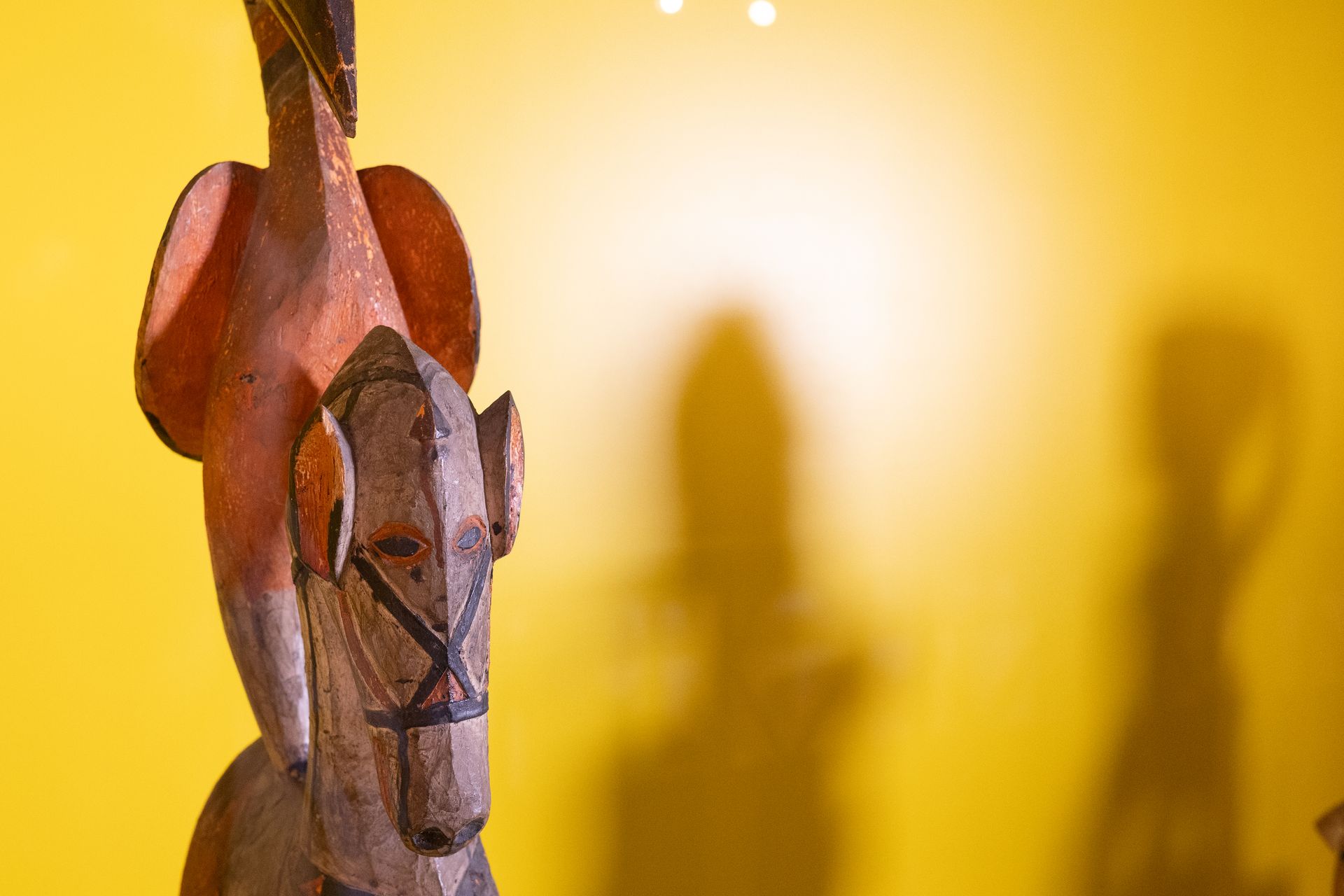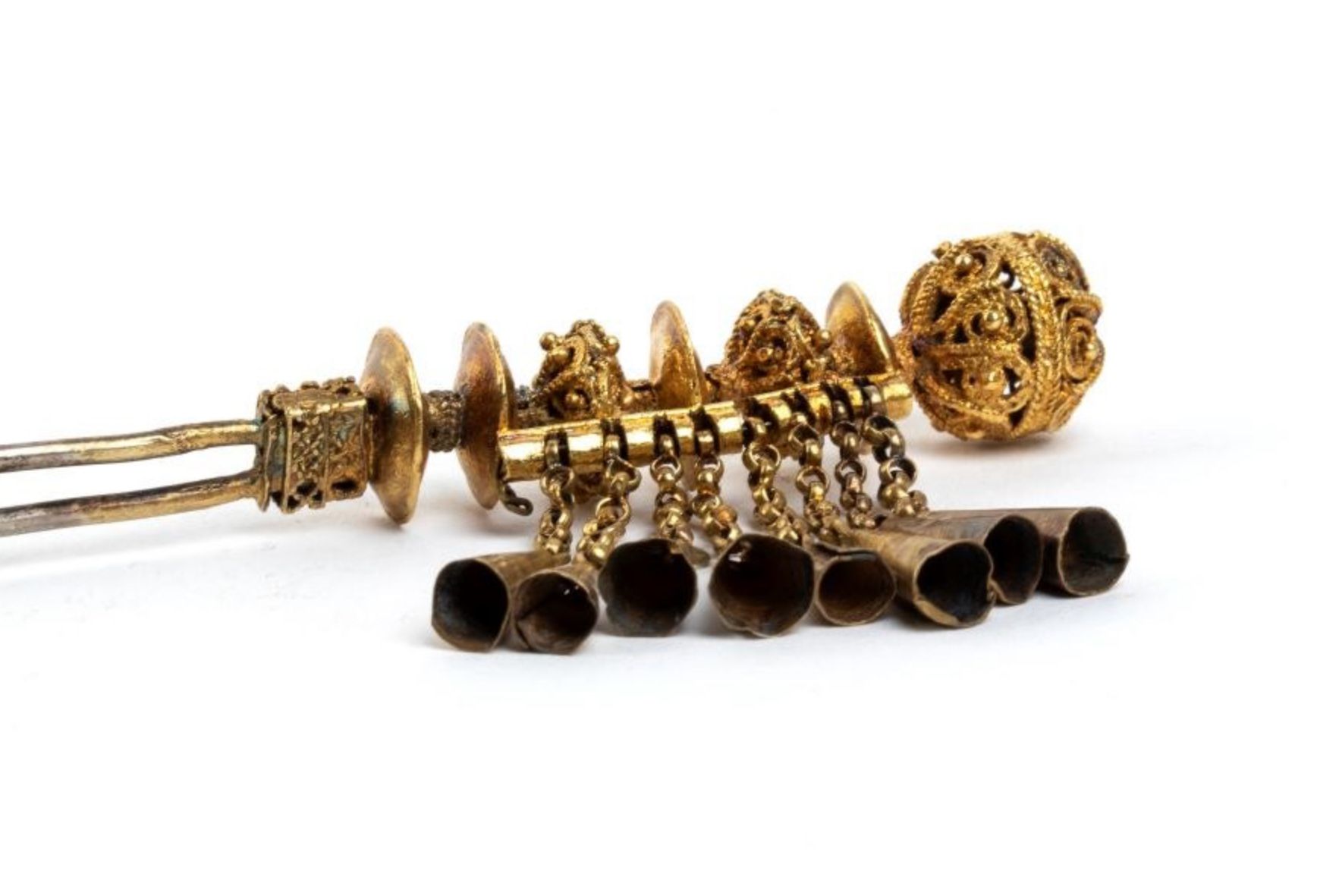Cultural Restitution
SHARE ARTICLE
An outstanding ancient beak-spouted gold ewer, created 4,250 years ago by the Hatti Civilisation of Anatolia, has been returned from the V&A Museum in London to the Republic of Turkey.
The ewer was part of the magnificent Gilbert Collection of gold and silver treasures, on long-term loan to the V&A.
Arthur and Rosalinde Gilbert were British citizens of Jewish ancestry who left the UK in 1949 to set up home in Los Angeles. Together they amassed a collection of almost 1200 exquisite objects of gold and silver, transferred to the V&A in 2008. An emotive exhibition of 80 of these objects was held at the V&A in 2019. The gold ewer was not included in this exhibition and, in fact, as the lone antiquity in the Gilbert collection, was never placed on display by the V&A.
Sir Arthur Gilbert had purchased the ewer in good faith from a dealer in Los Angeles in 1989. Provenance information was often lacking at that time, so an absence of a detailed provenance would not have been unusual. There's no suggestion that Gilbert was ever aware the ewer might have been illicitly trafficked out of Turkey.
In 2018 the V&A appointed Dr Jacques Schuhmacher as the Rosalinde and Arthur Gilbert Provenance and Spoliation Curator, Britain's first-ever provenance curator. Schuhmacher is an expert on the restitution of Jewish-owned looted works of art and was co-curator of the V&A's 2019 exhibition. The extensive research he conducted into the ewer's provenance revealed it might have been removed illegally from Anatolia, not least because the Los Angeles dealer who sold the ewer to the Gilberts is known to have dealt in illicit antiquities. Turkey prohibits unregulated excavations and the export of national treasures.
Schuhmacher's concern was confirmed when the Gilbert Trust shared their research, including a chemical analysis of the ewer's metal components, with experts at Turkey’s Ministry of Culture and Tourism. The Ministry's own analysis of the metal and style of ewer pointed to archaeological excavations at Alacahöyük and Mahmatlar as the most likely origin of the vessel. The ewer, probably illegally excavated around the mid to late 20th century, would have been used by the ruling elite for libations during sacred ceremonies.
When they first approached the Ministry, the Gilbert Trust for the Arts, a charitable company set up as guardians of the Gilbert’s extensive collection, emphasised that if the Ministry's own scientific research confirmed the Trust's research into the origins of the gold ewer, they'd be prepared to return it to Turkey. The ethical case for its restitution appears to have been a powerful motivator in the Gilbert Trust's willingness to make this decision. That wish has now been fulfilled.
The success of this collaboration between the Gilbert Trust and Turkey’s Ministry of Culture and Tourism demonstrates the huge value and importance of investment into provenance research. It also demonstrates what can happen when the ethical case for restitution is overwhelming. Once the trail of evidence made it clear the ewer had been illegally excavated and trafficked, there was no way either the V&A or the Gilbert Trust could hold onto the vessel. Both the V&A and the Gilbert Trust were also aware of its value to Turkey as a major work of their ancient past. This unity of mind has led the ewer to be reunited with other important examples of metalwork from these two archaeological sites, now all on display at the Anatolian Civilizations Museum in Ankara.
Photo: Gold ewer, unknown maker, c.2500 – 2000 BC, Anatolia
© The Rosalinde and Arthur Gilbert Collection
After this was written.....
Research undertaken by
The Art Newspaper identifies the Los Angeles antiquities dealer who sold the ewer to the Gilberts as Bruce McNall, who claimed he acquired it from the Zurich restorer Fritz Burki. Burki has been linked with the Italian antiquities trafficker Giacomo Medici.
More News



